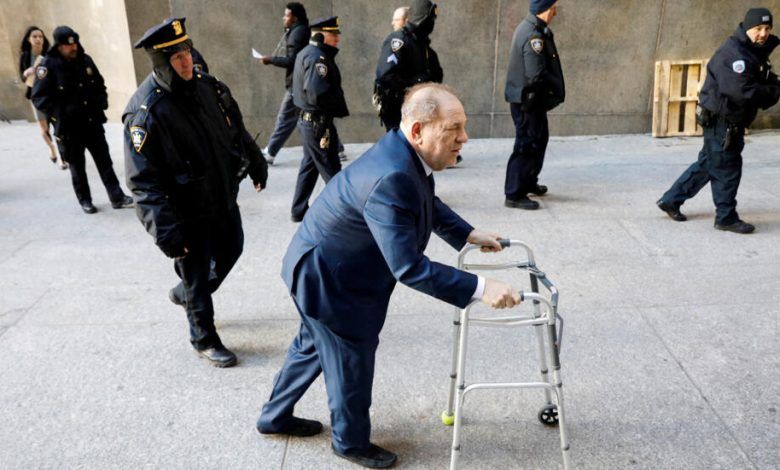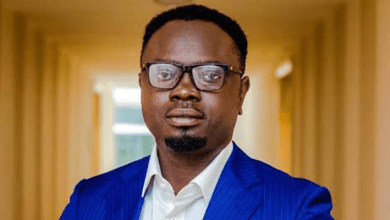Harvey Weinstein’s Rape Conviction Overturned by Top New York Court

Harvey Weinstein’s 2020 conviction for sexual assault and rape was reversed by New York’s highest court, revisiting the historic case that ignited the #MeToo movement and underlining the difficulties in holding powerful men responsible.
In a 4-3 judgment on Thursday, the state Court of Appeals found the trial judge erred by allowing women to testify that Weinstein raped them, despite the fact that their allegations were not part of the charges against him.
“The remedy for these egregious errors is a new trial,” Judge Jenny Rivera wrote for the majority.
Weinstein, 72, has been serving a 23-year sentence in a prison in upstate Rome, New York.
He is not expected to be freed immediately, as he also faces a separate 16-year prison term in California after being convicted there last year for the 2013 rape of an actress at a Los Angeles hotel.
“We will do everything in our power to retry this case, and remain steadfast in our commitment to survivors of sexual assault,” Emily Tuttle, a spokesperson for Manhattan District Attorney Alvin Bragg, said in an email.
Bragg’s predecessor, Cyrus Vance, brought the New York case.
Bragg’s office is separately in the middle of a criminal hush money trial against former U.S. President Donald Trump.
Arthur Aidala, a lawyer for Weinstein, called the decision a victory for his client and any American charged with a crime, “no matter how popular or unpopular they are.”
Weinstein has denied having non-consensual sexual encounters with anyone.
Ashley Judd, the actress and one of Weinstein’s accusers, at a press conference called the decision “an act of institutional betrayal.”
‘DISTURBING TREND’
Judge Madeline Singas dissented, saying the decision “perpetuates outdated notions of sexual violence” and makes holding defendants accountable for sexual assault “significantly more difficult.”
She also accused the majority of whitewashing the facts and continuing what she called a “disturbing trend” of overturning jury verdicts in sexual violence cases.
“New York’s women deserve better,” Singas wrote.
The New York conviction had been considered a milestone for the #MeToo movement, in which women accused hundreds of men in entertainment, media, politics and other fields of sexual misconduct.
“Some thought the [Los Angeles] case to be superfluous,” Elizabeth Fegan, a lawyer for some Weinstein accusers, said in an email. “Now we realize how important it was.”
Aidala, Weinstein’s attorney, said he believed the New York decision could influence a California appeals court which is considering whether to overturn that conviction. The California trial similarly featured testimony about his alleged past misconduct as part of the prosecutors’ case.
The New York appeals court also said the trial judge compounded its error by letting Weinstein be cross-examined on a broad range of “loathsome” conduct, including bullying and fits of anger toward associates, that portrayed him in a “highly prejudicial” light.
“It is an abuse of judicial discretion to permit untested allegations of nothing more than bad behavior that destroys a defendant’s character but sheds no light on their credibility as related to the criminal charges,” said the ruling.
Weinstein was convicted in February 2020 in Manhattan of sexually assaulting former production assistant Miriam Haley in 2006, and raping aspiring actress Jessica Mann in 2013.
The charges on which he was convicted were first-degree sexual assault and third-degree rape. Jurors acquitted him on other charges.
Weinstein’s trial judge, James Burke, was not reappointed to the bench after his term expired at the end of 2022.
Some states, including New York, responded to the #MeToo movement by passing laws that let women bring civil lawsuits seeking damages for sexual misconduct that occurred many years earlier even if statutes of limitations had already passed.
Weinstein co-founded the Miramax film studio, whose hit movies included “Shakespeare in Love” and “Pulp Fiction.” His own eponymous film studio filed for bankruptcy in March 2018.
He joins former comedian Bill Cosby among those who have had sexual assault convictions overturned.
Cosby’s 2018 conviction was overturned three years later by Pennsylvania’s highest court. The majority said a 2005 agreement by prosecutors not to charge Cosby with drugging and assaulting a woman meant he should not have been charged a decade later.





